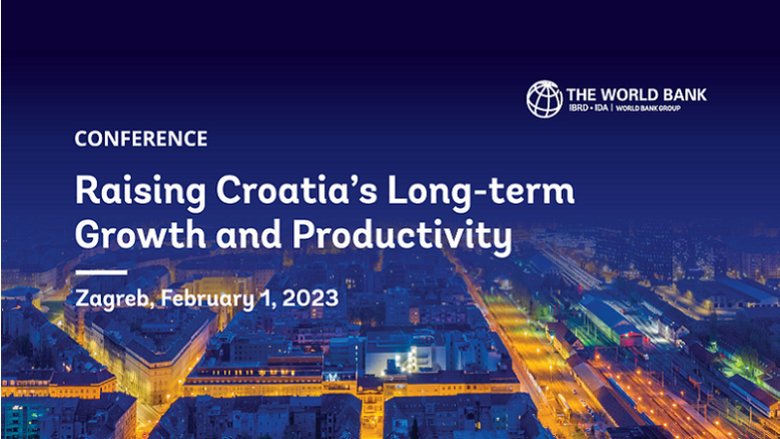Attaining higher living standard for its citizens, speeding up convergence with the average European Union (EU) income levels and doubling its long-term growth per capita is well within Croatia’s reach. This can be achieved with a deepening of the reform agenda with the focus on the productivity of the overall economy, quality of education and increasing the labor market participation, according to a new World Bank report presented at the Raising Croatia’s Long-Term Growth and Productivity conference.
The World Bank report—Laying the Foundations: Boosting Productivity to Ensure Future Prosperity in Croatia—looks at long-term growth prospects and the productivity of the Croatian economy. It has found that despite significant economic and social progress, Croatia’s low productivity growth, as compared to its regional peers and advanced EU economies such as Germany, is the main hurdle in significantly increasing economic growth of the country. The report argues that boosting productivity in the long-term calls for enhanced efforts in strengthening institutions, reducing market inefficiencies and upgrading firms’ capabilities.
The report suggests that a moderate package of reforms would boost GDP per capita growth by 0.6 percentage points on average until 2050, while per capita income in Croatia would converge to the EU27 average in the long run, reaching 97 percent of the EU27 average by 2050. In contrast, an ambitious reform scenario could boost GDP per capita growth by 1.4 percentage points on average until 2050 and enable Croatia to close the gap in the late 2030s and potentially exceed the EU27 average by 2050.
The event gathers policy makers, representatives of local government, the European Commission, international community, private sector, think tanks, academia and civil society. The conference also hosted a panel discussion with distinguished experts entitled How to Boost the Productivity of the Croatian Economy?
